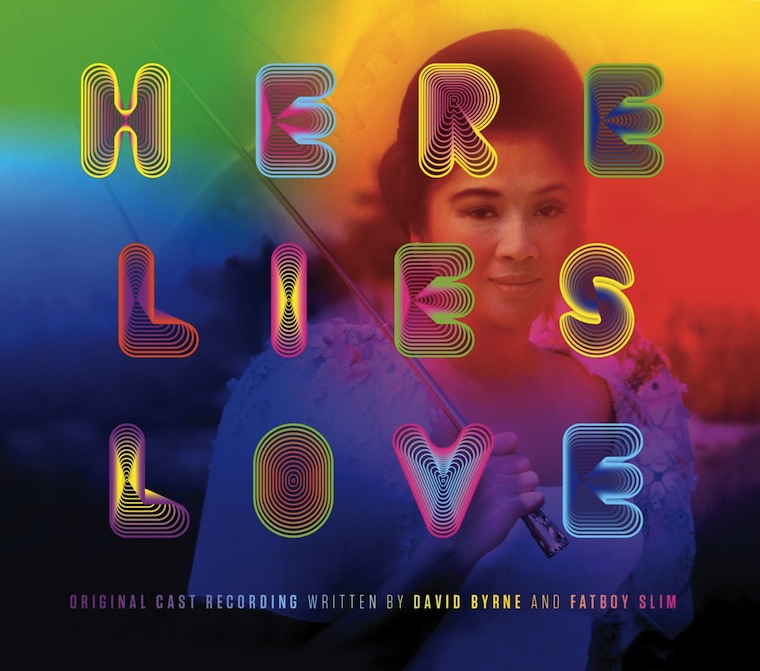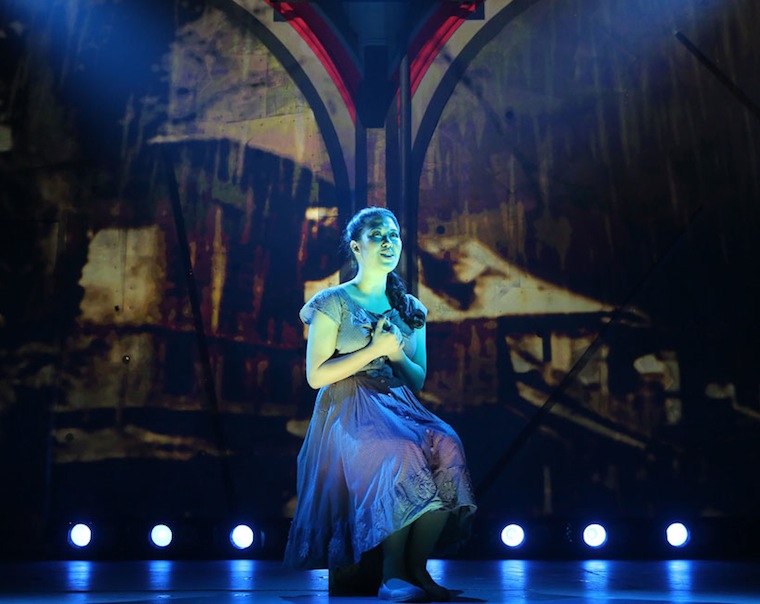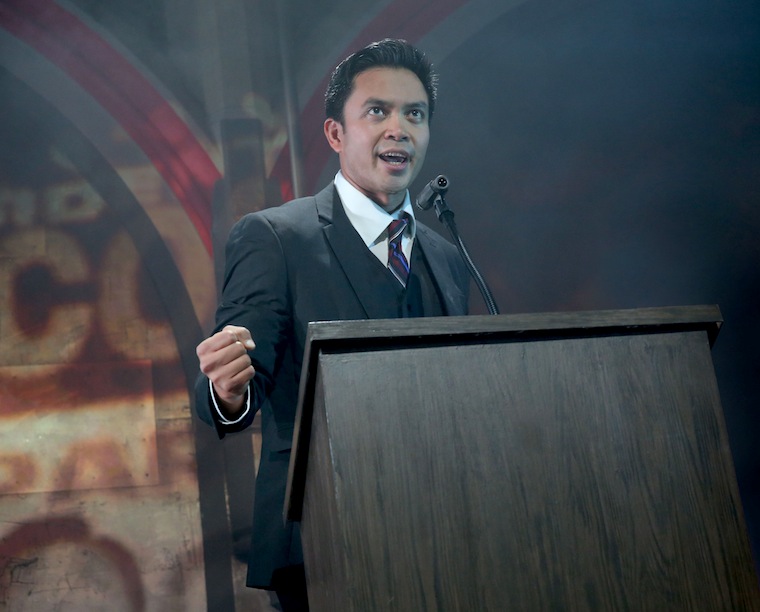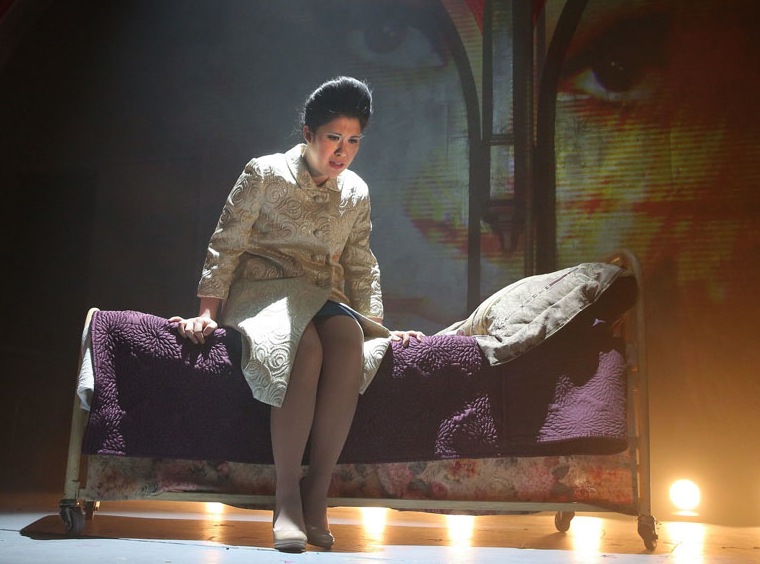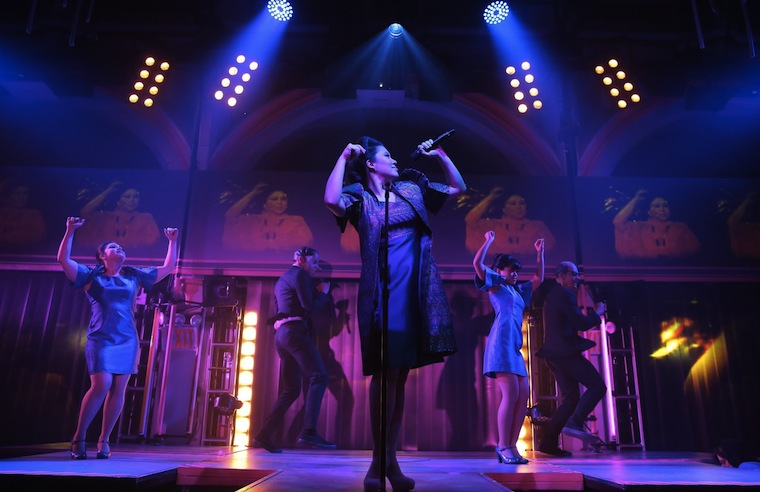We love to see our idols fall. It’s an infuriating aspect of human nature that we somehow enjoy their pain as much as their pleasure. Before we can revel in them at their lowest, however, we must first raise them up. That supersonic trajectory and its subsequent plummet, forms the powerful pumping heart of ‘Here Lies Love’, a musical that sings the story of Imelda Marcos, notorious First Lady of the Philippines.
Like its complex heroine and the country in which it’s set, ‘Here Lies Love’ is brash, brilliant, and over-the-top in all the right ways. It personifies the Philippines in ways subtle and overt, with its strange juxtaposition of Catholicism, hedonism, treachery, honor, and, yes, love. As a Filipino myself, I’ve always maintained that we’re a crazy, fun-loving culture, filled with a riotous mash of squalor, beauty, violence, peace, laughter and tears. In other words, it’s just like any other country, with the drama racked up a few notches, all backed by a cheesy dance track. Having visited the Philippines a number of years ago, I can also vouch for the fact that the Filipinos love their karaoke, and take it rather seriously. (In fact, someone was literally shot when their rendition of ‘My Way’ was not up to par. True story.) That’s the kind of atmosphere that makes ‘Here Lies Love’ such a perfect personification of the Philippines and its most famous First Lady.
“Is it a sin to love too much?” Imelda asks as a young girl. She is just a teenager, making googly eyes at a white-suited Ninoy Aquino (a twist to the story that I originally found too good to be true, but after researching it, it appears based in fact) who rejects her for being too tall for his burgeoning political career. Following that she finds her way to the charismatic Ferdinand Marcos, who is leading his own campaign to become President, and she is swept off her feet into a politically-charged world of power, glamour, and burgeoning corruption.
The music of David Byrne and Fatboy Slim, which originally spear-headed this production in the form of a concept album, is the perfect disco-infused impetus to drive a Filipino tale like this. Don’t let those disco touches dissuade you from giving props to the tunes: these are solid songs, grounded with some gorgeous melodies and performed by some spectacular voices.
Ruthie Ann Miles brings the voice and the looks to the former beauty-queen, and an uncanny resemblance to Imelda (those sky-high shoulders and that bulbous chignon certainly aid in the magic), but more compelling than all of that is the way she crafts the arc of her character’s journey from innocence and passion to calculation and cruelty, never losing an ounce of the complexity and vulnerability of a woman caught up in her own myth, trying to hang onto her husband, and herself.
As the seductive dictator, Jose Llana brings political charisma, chiseled sex appeal, and a palpable power to Ferdinand Marcos. It’s a testament to his charm and magnetism that, while knowing all the while what Marcos really did, we still can’t help but fall prey to Mr. Llana’s alluring performance. He draws us in with one of the most beautiful songs of the evening, ‘A Perfect Hand’, which makes optimal use of its audience interaction as a news crew follows Llana around the room as he campaigns and poses with his constituents, projecting the images on screens and giving several audience members their moment in the limelight. If you have any doubt as to the effectiveness of the audience participation required of the program, it dissipates here.
As intoxicating as Llana’s Marcos is, the heart of the show belongs to Conrad Ricamora as Ninoy Aquino, who becomes the real champion of the people, giving voice and vitality to the emotional depth of the proceedings. His character is not without fault, however, and such complexities are what make this more than just a disco-karaoke romp. It’s a tragic fairy tale with a dark heart, shot through with jabs of hilarity, and soaked in moments of deeply-affecting pathos. That it manages to be this entertaining is a thing of wonder.
After a rousing song lamenting the assassination of Aquino, performed by his grieving mother no less, Imelda appears high on a ladder, decked out in a sparkling gown. “Why don’t you love me?” she sings, entirely oblivious to the devastation at hand, and fixated solely on herself. She asks in a way both comical and earnest. If she has become a monster, we the people have had as much a hand in it as her, allowing ourselves to be duped, wanting to believe in something better for someone else, wanting to believe we had a champion.
Trapped in her opulent palace, she looks up as a helicopter roars overhead, waiting to whisk her and her husband away to exile. A figure the public has built up to be, reviled and revered, she stands as a symbol of her country, a symbol of someone we think we want to be – breathtaking, beautiful, cruel, glamorous, and greedy.
That’s the beauty of this production and its people -“ it’s ridiculous but at the same time moving, as hilarious as it is heart-breaking, and it requires a cast and crew that can expertly execute moves with precision and grace. The staging is intricate, with some hokey-but-effective choreography, and the audience moves with the action. In fact, if they don’t move they’re likely to get run-over. This immersive nature of the show works, as the audience becomes part of the People Party, standing in and making it onto the screen in news reports, dancing along with Imelda as she hits the hottest clubs of the world, and ultimately joining in a final demonstration of peace.
It totters on that tricky border between high-art and cheesy-sleaze – there’s certainly a bit of the tacky at work, but it’s done with a wink and a heartwarming smile. If you give yourself over to the guilty-pleasure aspects of it you can’t help but be taken to a fantastical place half-way around the world, moved to the paradisiacal and perilous plane of the Philippines, where the beat never slackens, and the party never stops.
{Photos by Joan Marcus.}
Back to Blog
